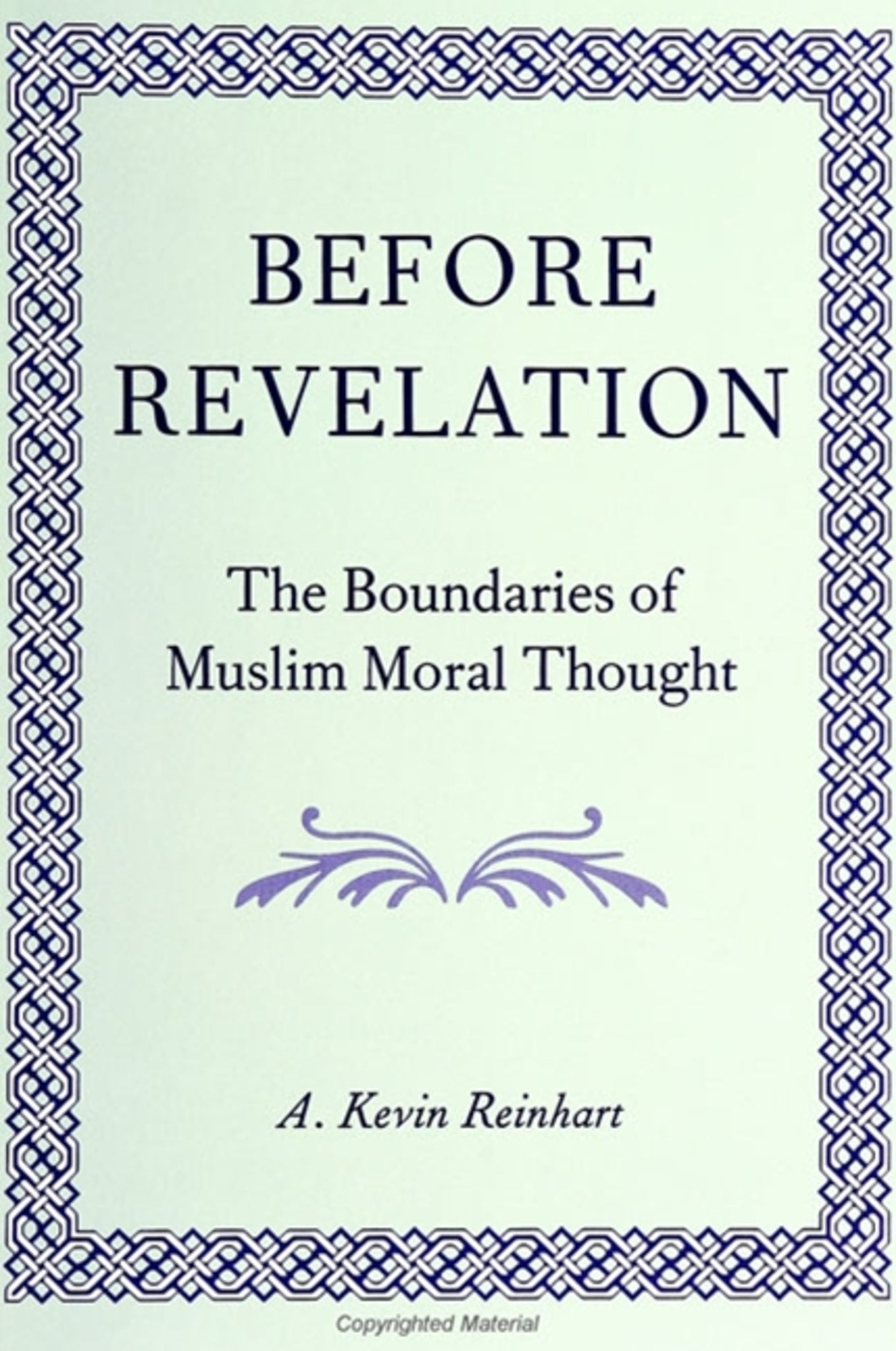We're sorry. An error has occurred
Please cancel or retry.
Before Revelation

Some error occured while loading the Quick View. Please close the Quick View and try reloading the page.
Couldn't load pickup availability
- Format:
-
16 February 1995

Studies the development of Muslim jurisprudential and theological thought by analyzing the dispute that raged from the ninth to the nineteenth century over the assessment of acts that took place before the Qur'anic Revelation.
Before Revelation studies the development of Muslim jurisprudential and theological thought as expressed in the extensive dispute over the assessment of acts that took place before the arrival of Revelation.
Between the ninth and nineteenth centuries Muslims debated, often fiercely, the question, "What is the value of an act—moving from place to place, breathing, or eating a tasty food, for instance—before Revelation arrives?" That is, Muslims, whose existence as Muslims derived from the Qur'anic Revelation, debated whether acts could be called "good," or "reprehensible," before the Qur'an. This book analyzes that prolonged debate from a History of Religions perspective, using sources from the Muslim sciences of jurisprudential theory (usal-fiqh) and theology (kalam).


"This is a lively and interesting book as well as a valuable addition to contemporary studies in Islamic theology and jurisprudence." — Jane Dammen McAuliffe, Chair, Department for the Study of Religion, University of Toronto
"This is a thorough and systematic study of a discrete and important, but little-known issue in the field of Islamic ethics. Using an impressive array of manuscripts and published sources, the author demonstrates that during its formative period, Muslim theological doctrine was fluid, and that scholars who reportedly were members of a particular school often held views that were at variance with school doctrine. In this respect, the author's conclusions are important and significant." — David S. Powers, Cornell University
"The topic is of very considerable importance for the intellectual history of medieval Islam. Not only does the author deal with questions that are central to the history of Muslim religious thought, he is the first scholar (so far as I am aware) to treat in a systematic and sustained fashion the particular set of questions addressed in this work. Even those whose primary interest is in the modern period will find the work to be useful in illuminating certain developments in the nineteenth and twentieth centuries." —— Merlin Swartz, Boston University
Preface
Conventions
Part I: Introduction and Overview
1. Introduction
2. Development and Doxography
Part II: The Three Positions
Introduction
3. Acts are Proscribed (mahzur)
4. The Permitted Position
5. "No Assessment"
Appendix: Two Translations of "Before Revelation" Texts
Translation of a Section from al-Fusul fi l-Usul of al-Jassas
Translation of a Section from Kitab al-Mustasfa fi 'ilm a-usul
Abu Hamid al-Ghazali
Part III: Thanking the Benefactor
6. God As Patron: Thanking the Benefactor
Appendix: An Early Debate on Thanking the Benefactor
Part IV: The Background
7. Conceptual Sources of the Problem
8. Abu l-Hudhayl and the Early Mu'tazilah
9. The Basrans: Moral Ontology and Epistemology
10. The Critique of the Mu'tazliah: Ignoring Ontology
Part V: Conclusions
Notes
Bibliography
Index



